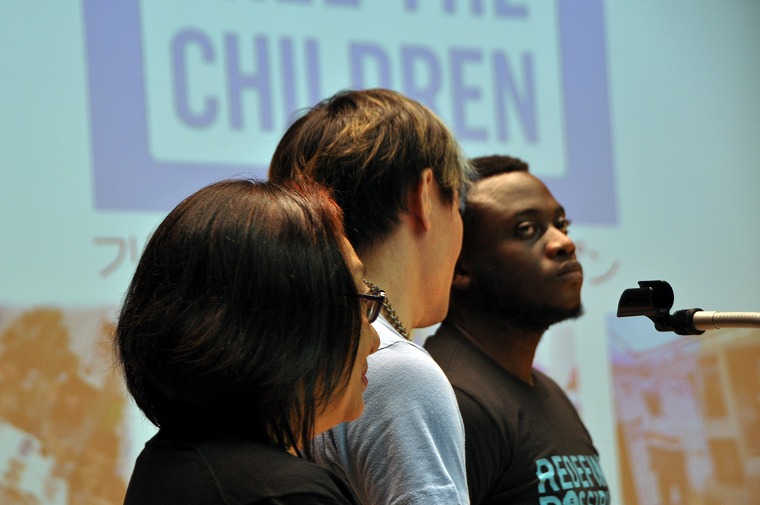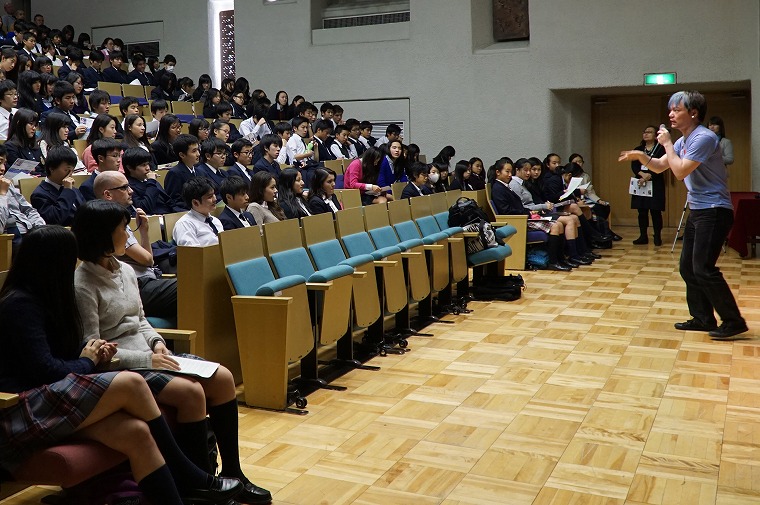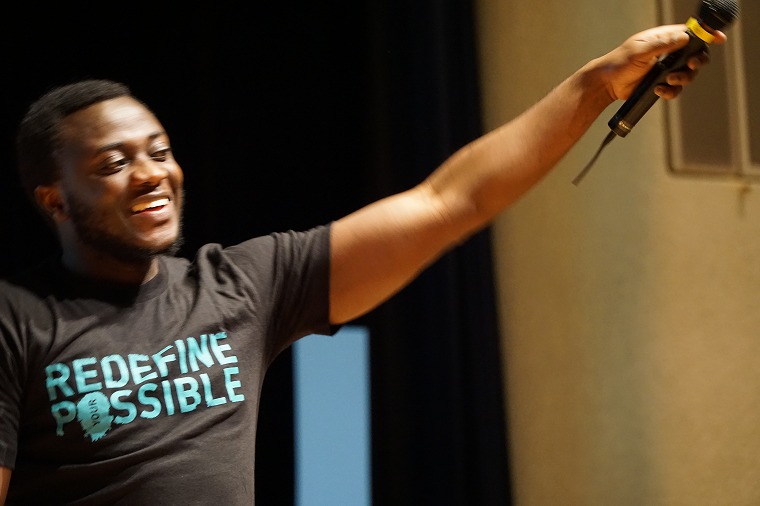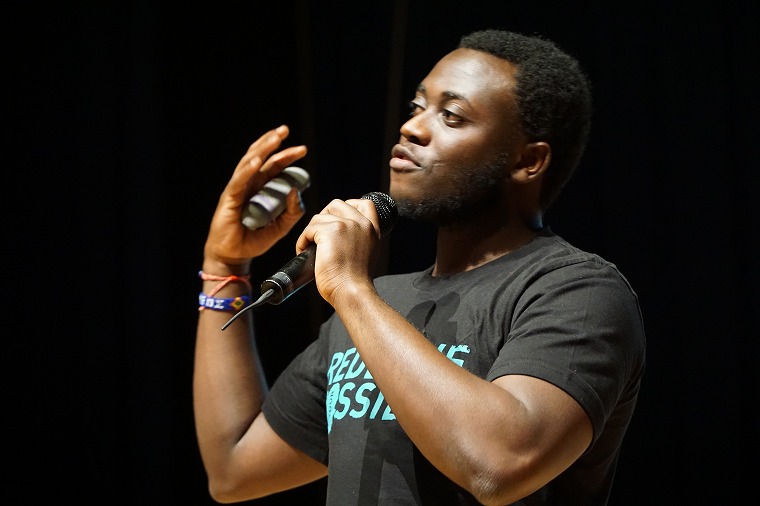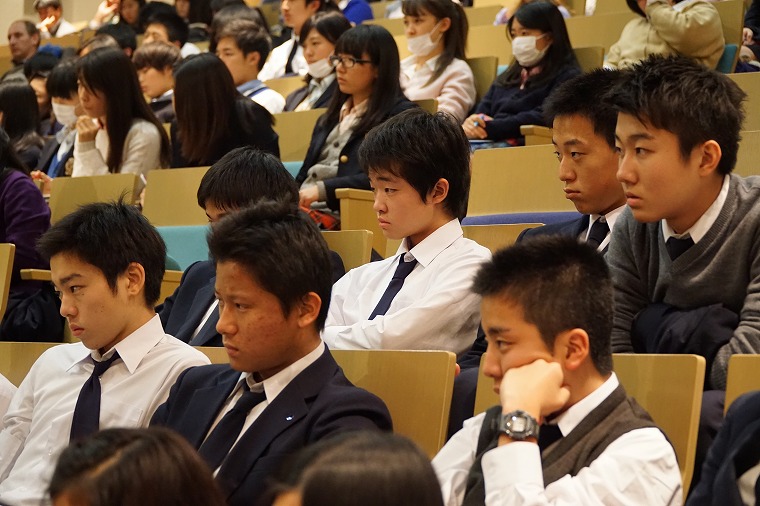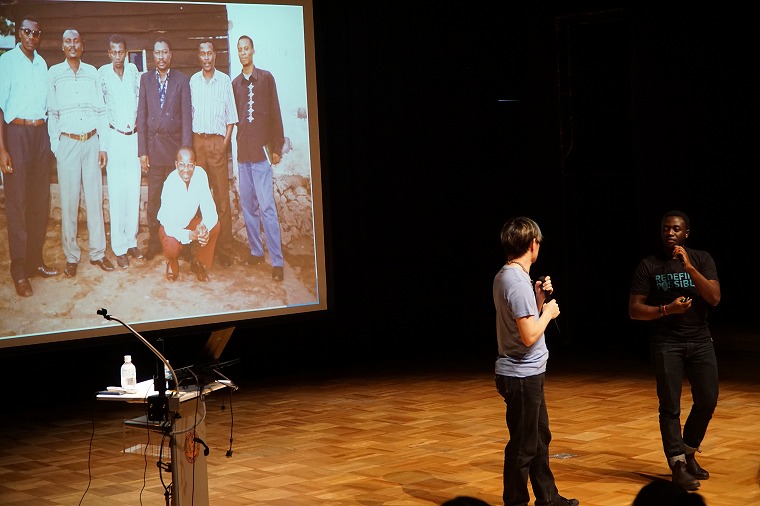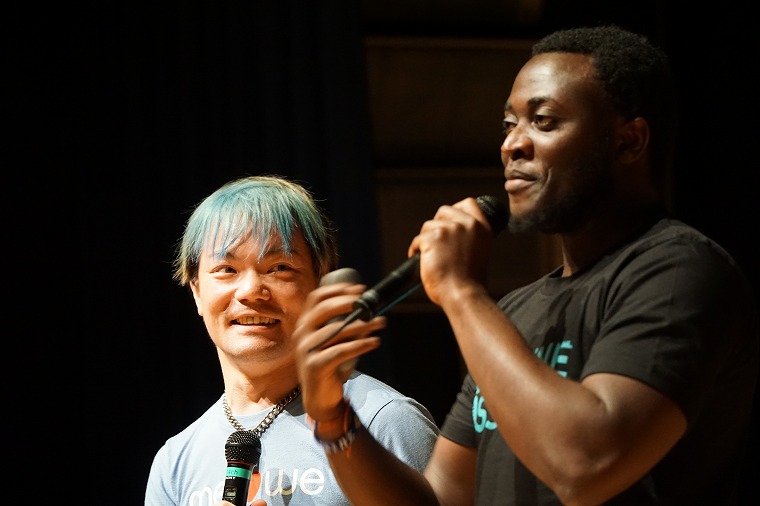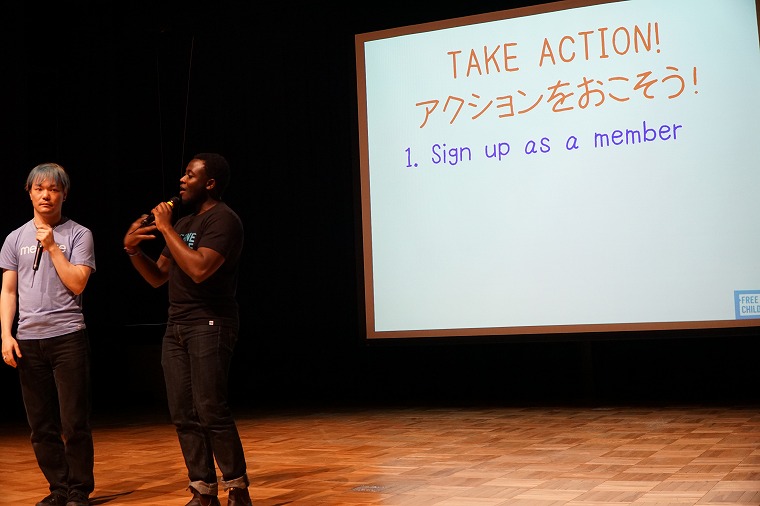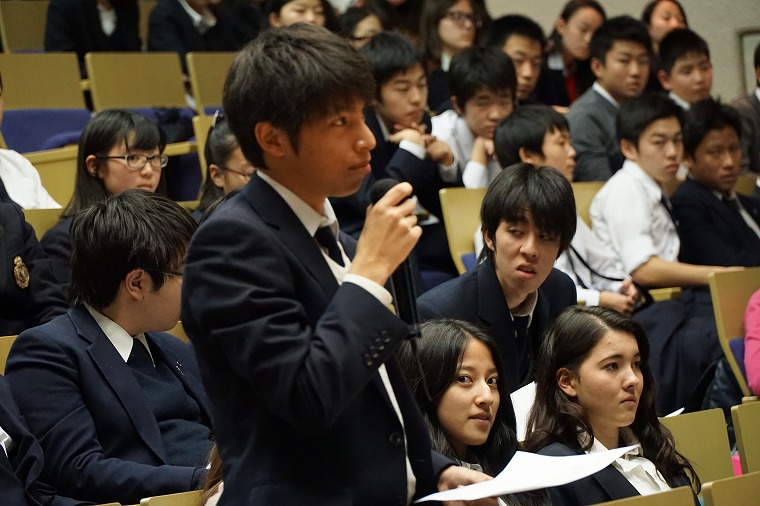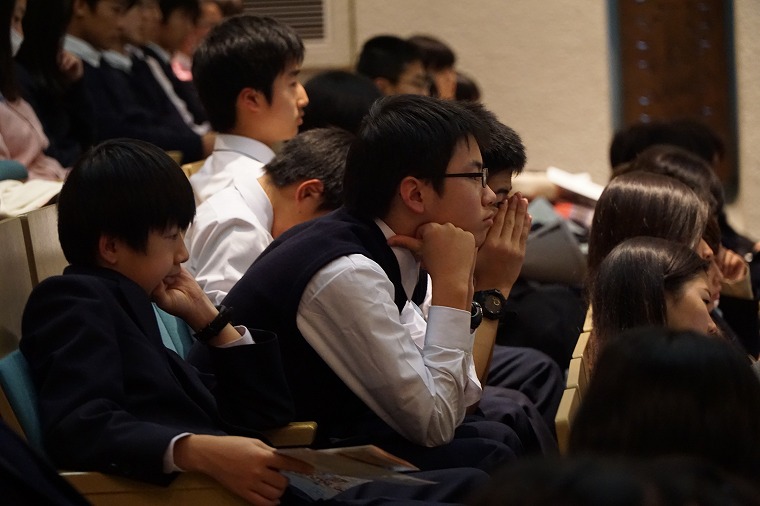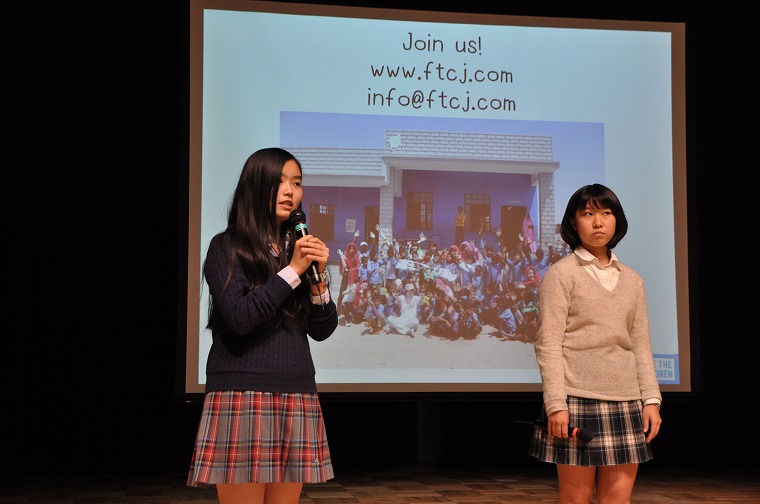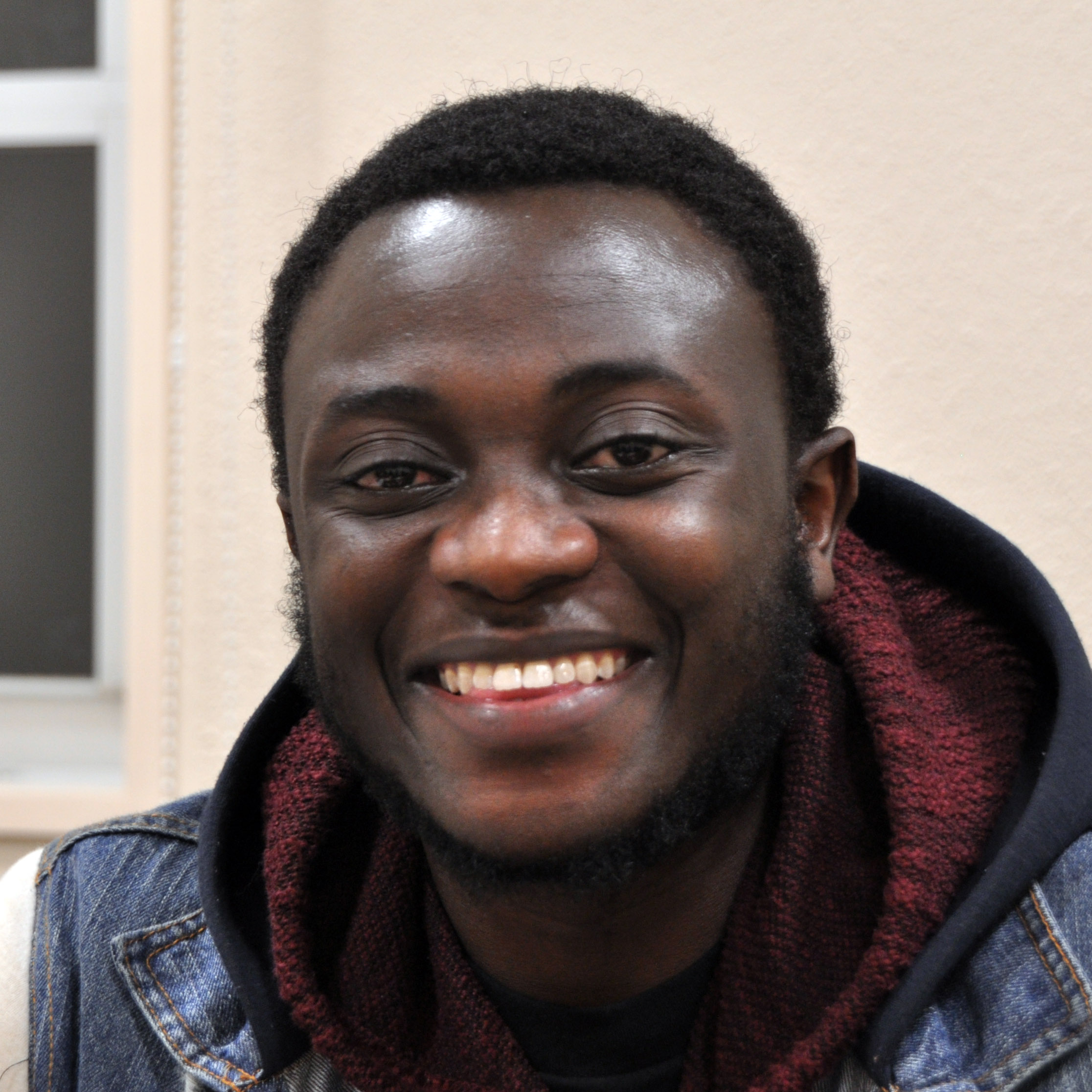The speaker for the 11th lecture of the Global Carrier Lecture Series was Michel Chikwanine, who works for the international cooperative group, Free The Children that provides aid to children living in poverty or those who are forced to work.
150 students from grades 7th through 12th, most of whom were from the IB course and the Global Studies course attended the lecture.
He mainly told his life story that he had been abducted to work as a child soldier, and explained about the extent of abuse in the conflict zones. He also talked about the activities by Free The Children.
At the beginning of the lecture, two students speaking on behalf of all of the students in attendance greeted Michel in Japanese and English. Then, Mr. Amano, a staff member from Free The Children Japan (FTCJ), introduced the function and the principle of FTCJ`s activities. “‘I can change the world.’ No matter how small each action is,” and “by connecting with each other, we will change the world,” he emphasized.
Next, Michel introduced himself, broke down the syllables of his name into an onomatopoeia, and then showed the students how to pronounce his name. Then, he told amusing stories about his life in the village where he was born and raised that made the students laugh. Since the students in the audience were fluent in English, they were responsive to what he said. Michel and the students enjoyed communicating with each other.
Michel continued, “But such things are little known.” “In regards to Africa, the mass media covers only famous tourist spots, and poverty or civil wars, without providing information about giving their background and causes. It’s very uncertain,” he emphasized.
Then, Michel told his life story of how he was abducted at the age of five and trained to become a child soldier. The students found it startling to hear about his experience, which was totally unlike their lives in Japan. They were captivated by his story, and listened intently. Michel explained that he was motivated to escape the army but was worried because he thought, “Dad will scold me if I don’t come back home.” Listening to his lecture made the students feel the strength of his family who had a strong connection with each other.
After Michel returned home, he thought, “Such a terrible thing will never happen.” However, as the civil war started in 1998, his family was forced to leave their ordinary life. He talked about witnessing his father`s death, who had been persecuted for openly questioning the wars` premise and for expressing his disapproval of it. Moreover, he witnessed violence aimed at other family members. They abandoned all their possessions, and began to live as refugees.
After that, he was allowed to immigrate to Canada, where he experienced culture shock in the new climate and environment that was very different from the Congo. When he heard his classmates, who had everything, complain, he thought that they did so because “they know nothing.” Then, Michel told them about his experience, but that only antagonized them and as a result, he became isolated from them. In the meantime, he knew Craig Kielburger, the founder of Free The Children, and began thinking about his experience, that “By making peers and telling about the problem, the child soldiers would be released.” He said that he was able to tell a lot of people about this problem around the world.
He said, “What I want you to do is to ‘take action,’” and conveyed his father’s words—a person’s greatness is determined by what mind they have and what they did for others—which his father told him just before dying. “I’d like to take over the way my father lived and his spirit. I can’t be silent. So, I’m doing this activity. Thank you for giving me a chance to talk today,” he concluded.
During the question and answer session, the students asked why children were being abducted to become soldiers, and about the kind of life they would have in the future. By listening to him talk about the child soldiers, whose existence they were not aware of, the students` awareness had definitely changed.
He talked not only about his difficult and distressful experiences but also humorous episodes of his cultural shock. It was a valuable opportunity to learn about the actual condition of the local people behind the mass media’s reports and the importance of real “information.”
After that, a discussion took place, led by Uchiyama and Endo, who have been taking part in Free The Children activities and proposed inviting Michel. By showing example activities, they explained how they felt about being involved with the activities, and said, “We want you to know that your own messages will change the world.”
On this day the students have learned that anyone’s action can influence the world.




